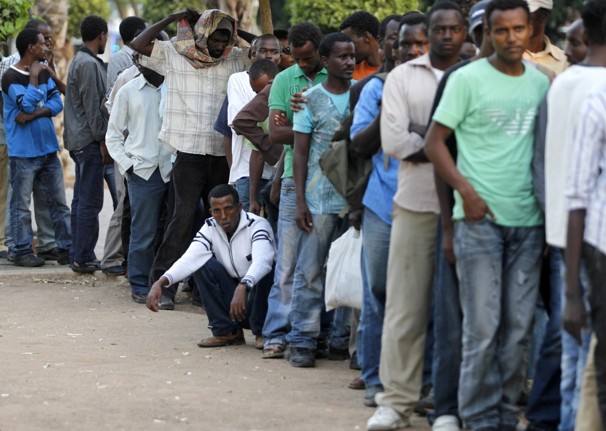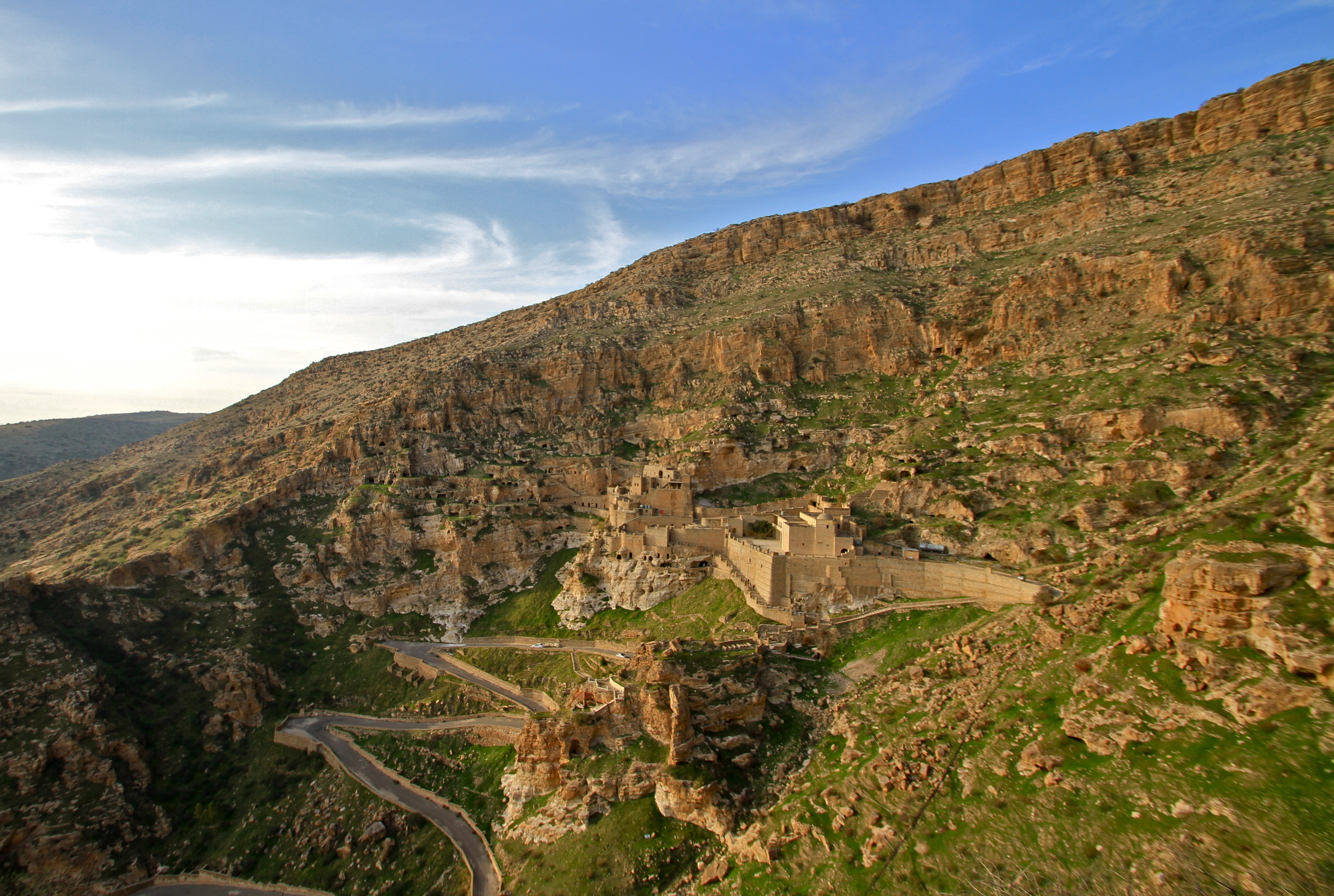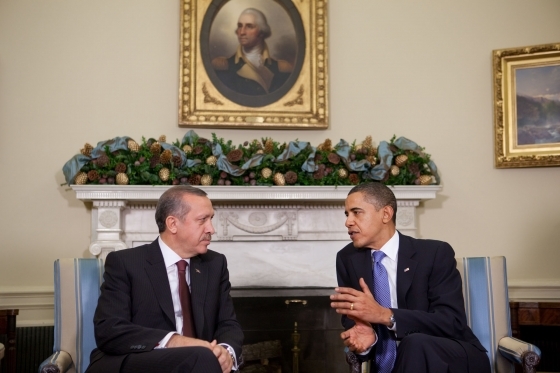“Ripping at Israel’s soul.” This is how New York Times columnist Isabel Kershner described the recent crackdown and deportation of thousands of African asylum seekers, refugees and other migrants within Israel. The previous weeks have played stage to some of the most dramatic efforts undertaken by the Israeli government thus far to rid the country of the approximately 60,000 African migrants that have entered the country since 2005.
However, many within Israel and abroad have been quick to criticize the hypocrisy of this decision, pointing out that Israel was formed in the wake of the massive exodus of Jews from Europe, fleeing persecution and seeking protection in the incipient Jewish communities of Palestine. The rounding up of African migrants has been concurrently paired with egregiously racist and xenophobic rhetoric by many prominent Israeli elected officials. As a result, many are questioning whether this represents a profoundly more worrying direction for Israeli society.
The issue itself is as disturbing as it is complex – how is Israel, the homeland for the Jewish people, supposed to react when tens of thousands of non-Jewish Africans enter its borders? In the view of the Israeli government, it is unable to grant citizenship rights to migrants – and thus the ability to work in Israel – as it would threaten Israel’s “Jewish character.” Of the 7,000 African migrants attempting to apply for official refugee status, only 16 have been accepted since 2009 – leaving the rest in a legal limbo inside Israel. As a result, much of the migrant population has been left jobless and is turning to petty crime to alleviate their unemployment. Between 2010 and 2011 criminal acts by the African migrant population in Israel increased by 54% according to Israeli authorities, half of which have occurred in south Tel Aviv neighborhoods.
[captionpix align=”left” theme=”elegant” width=”320″ imgsrc=” http://forward.com/workspace/assets/images/articles/w-crime-052712.jpg
” captiontext=”Residents in Tel Aviv protest against African migrant crime.”]
As crime has continued to increase, on May 24th south Tel Aviv residents organized a massive demonstration against African migrants, which quickly devolved into violence. Protesters began by marching and chanting anti-migrant slogans, before clashing with police and burning garbage cans. Demonstrators quickly turned their frustration towards the African migrant population itself, publicly attacking migrants and African-owned businesses. At one point, demonstrators even began stopping Tel Aviv city buses to search the passengers for migrants to pull off the bus and beat. The violence did not end there, as only days later on June 4th an apartment complex in Jerusalem housing primarily African migrants was firebombed by an unknown assailant, seriously injuring four.
While violence against African migrants has become increasingly prevalent in the streets of Tel Aviv and Jerusalem, truly unsavory rhetoric coming from Israel’s elected officials has become a source of concern for many Israelis and non-Israelis alike. Only days before the south Tel Aviv residents attacked African migrants, Knesset member Miri Regev called African migrants a “cancer in [Israel’s] body” – a sentiment the Times of Israel reported over 50% of Israelis support. Exacerbating the controversy, when asked to apologize, Regev apologized to cancer patients for likening them to African migrants. Israeli Interior Minister Elia Yishai in a recent interview stated that African migrants were all infected with AIDS and other diseases, and accused them of raping Israeli women. He continued, declaring, “this country belongs to us, to the white man.” While Israeli Prime Minister Binyamin Netanyahu has remained considerably more restrained in his comments, he still voiced considerable worry that the African migrants were “threatening the fabric of Israeli society” and that their presence could “lead to the eradication of Israel as a Jewish and democratic state.”
[captionpix align=”left” theme=”elegant” width=”320″ imgsrc=”
[captionpix align=”left” theme=”elegant” width=”320″ imgsrc=” http://www.csmonitor.com/var/ezflow_site/storage/images/media/content/2012/0524-israel-african-migrants/12654887-1-eng-US/0524-Israel-African-Migrants_full_600.jpg” captiontext=”An African migrant is interviewed by reporters after his car is attacked.”]
With violence erupting across Israel in late May and early June, the Israeli government sought to “solve the problem” currently unfolding across Israel once and for all. Initially, Netanyahu ordered the swift expansion of the Saharonim detention facility in the central Negev desert. The time frame given to contractors for expanding the detention site has been criticized by rights groups as not being adequate enough to properly construct shelter and sewage systems for detainees. Almost immediately following this announcement, the Israeli government moved ahead with legislation that grants authorities the ability to jail migrants for up to three years, without trail or deportation, and set a sentence of up to 15 years in prison for any Israeli found aiding or sheltering illegal migrants. In mid-June, Israeli authorities rounded up 25,000 African migrants, giving them less than three days to prepare for their forced deportation. Many of these migrants have called Israel their home for nearly a decade.
In 1977, Israeli Prime Minister Menachem Begin offered 66 Vietnamese refugees who had fled their country by boat the ability to settle in Israel. Begin announced, “It was a natural act to us… We remembered, we have never forgotten, the boat with 900 Jews having left Germany in the last weeks before the Second World War… traveling from harbor to harbor, from country to country, crying out for refuge. They were refused… Therefore it was natural that my first act as prime minister was to give those people a haven in the land of Israel.” However, as today African migrants are being attacked, corralled, deported or crammed into detention facilities, one must ask if under the current Israeli government it remains in Israel’s nature to give those seeking refuge a haven in the land of Israel. Or, if the Netanyahu government has placed the protection of Israel’s “Jewish character” over what the countless number of Israelis who denounce the recent violence and racism see as the Jewish state’s obligation to protect those crying out for refuge, regardless of their “character.”




